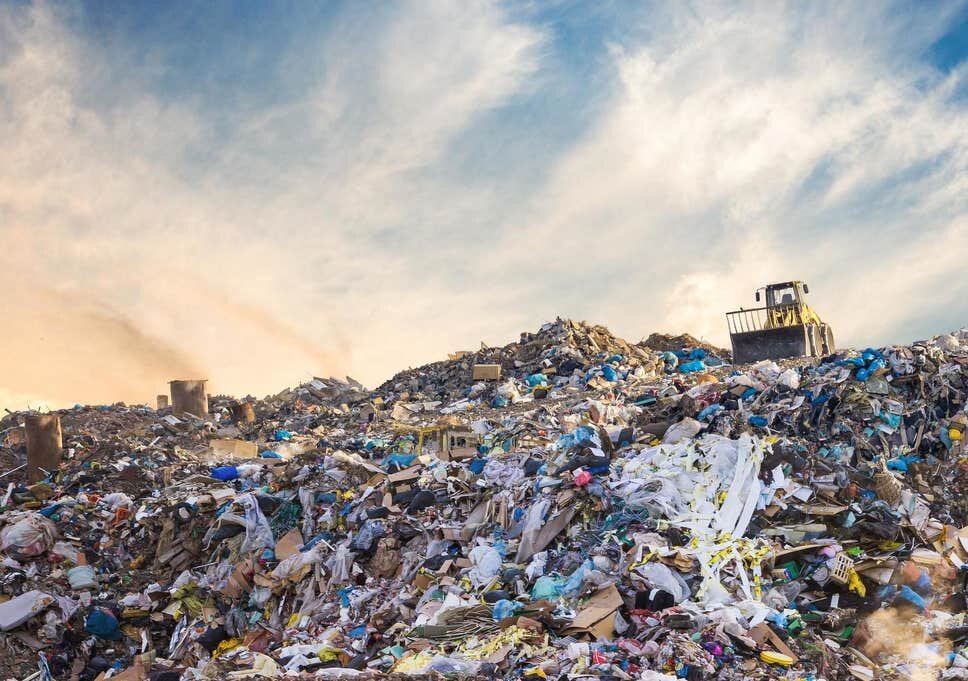We need to talk about your ‘hand-me-downs’
I love flea markets, maybe you picked up on that? I especially love flea markets in foreign countries. In fact, flea market hopping in a foreign country is quite literally my favourite thing in the world. I’m currently in Bali and yesterday Wayan, our lovely Balinese driver, was rattling off all the different things to do in Ubud - ‘Rice paddie walk, jungle trekking, second hand clothing market, cycle tour…’ Wait, what? Second hand clothing market? Do I just subconsciously scream, “take me to your second hand everything market!?” or is this an actual thing to do in Bali? I’m not sure why I was surprised. Afterall, Indonesia is one of the leading countries that import second hand clothing from the western world. After convincing my fellow travel companions, we of course worked in a cheeky visit to the Pejang second hand market just before the Gianyar night market.
Visiting the Pejang second hand market was a stark reminder of the unfathomable amount of clothing that exists on earth. Think piles and piles of clothes from Japan, China and America, all laid out on tarps on the ground. And although I didn’t go with the intention of buying something, I’d never turn down a visit to a flea market.
Don’t get me wrong, it’s great to see used clothing getting a second life and not slowly (and I mean really slowly) rotting away in landfill, but it highlighted yet another issue that the fast fashion industry has created.
The importation of used clothing from foreign countries is illegal in Indonesia and many other countries including India, China and parts of Africa.
Think about the amount of clothing you have donated over time. Much of that clothing is actually bought by wholesale, second hand traders and sold off to third world countries. And the reason many governments have made it illegal is because imported clothing is flooding the local market and slowly drowning traditional craftsmanship. Importing and selling used clothing is often a very lucrative trade for locals and although it’s illegal in many countries, policing it is incredibly difficult in countries with large coast lines and many potential ports.
So what does that mean for my obsession with second hand clothing? Do I have to boycott that too?! Straight up. Hell. No.
By focusing on ripple effect problems, we tend to overlook the bigger picture, which is of course, fast fashion.
This issue, like all the other issues caused by fast fashion should be acknowledged. We need to continue putting pressure on fast fashion giants by demanding transparency and being conscious about where we spend our money. In saying that, the used clothing industry has also created new opportunity for local traders. Buying a bale of imported clothing is affordable and the potential profit that can be made is quite high. The demand for used clothing in Indonesia is continuously growing as more and more Indonesians desire different styles at more affordable prices. So although it is having a negative impact on local business and traditional craftsmanship, it creates new opportunities for locals and grants used clothing a longer life saving it from landfill for at least another couple of years.
This may be controversially capitalist of me, but just like any business model, if you are no longer suppling based on the consumer’s demand, and you are unwilling to change, then how can one expect their business to thrive?
But please don’t get me wrong. I wholeheartedly believe that traditional craftsmanship should be preserved. In fact, this is yet another reason among the multitude of reasons as to why our consumption of things, specifically clothing, needs to slow down.
So, what is the solution?
Restricting the amount of textiles fashion giants are allowed to produce? What about laws that require giants to use a certain percentage of recycled materials in their products? Maybe that’s too humanistic of me. Where there is money to be made, there is little chance said laws would get a leg in, especially considering climate change, global warming and all environmental science is struggling for a political forefront in many ‘apparent’, forward thinking countries. Australia, embarrassingly being one of the main contenders.
If we can’t introduce laws to restrict fast fashion chains, we can reduce our demand for clothing.
Do you sometimes feel like your purchasing decisions aren’t making a difference? Well, I’m here to tell you they do! Large chains like H&M are feeling the pressure. In fact H&M is the largest consumer of organic cotton worldwide and they’ve even released a sustainability report which details information on all aspects of H&M’s supply chain. Although this is a huge step in the right direction, this doesn’t mean that H&M should be your number one place to shop. There's is still A LOT of work to be done. These changes simply prove that if we continue to demand change, change will come.
So no matter what country you’re in, keep shopping second hand. Second hand for life yo!

